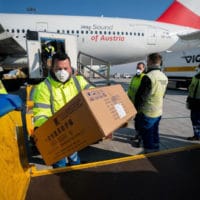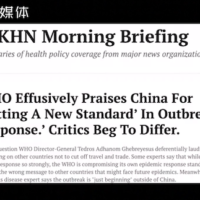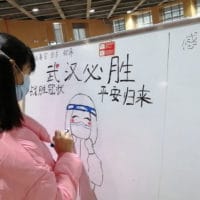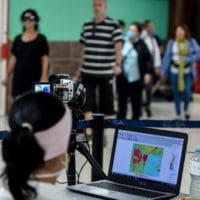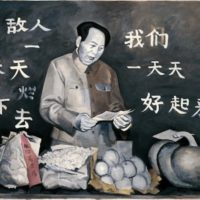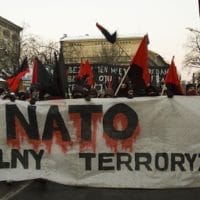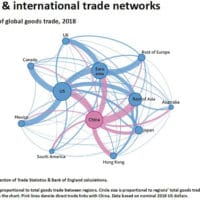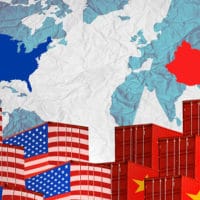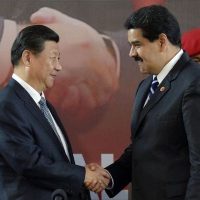-
Pandemic story: failures, forebodings, signs of solidarity
A great hazard looms. Under duress and as chaos mounts, capital may find it useful to revert to the extremist, even brutal, measures figuring in its past.
-
Cuba: from AIDS, Dengue, and Ebola to COVID-19
Cuba’s preparation for COVID-19 began on January 1, 1959. On that day, it laid the foundations for what would become the discovery of novel drugs, bringing patients to the island, and sending medical aid abroad. Coping with HIV/AIDS, dengue fever and Ebola helped Cuba develop the ability to cope with pandemics, both internally and abroad.
-
How China learned about SARS-CoV-2 in the weeks before the global pandemic
In the early weeks when the virus emerged in Wuhan, the Chinese government neither suppressed evidence nor did their warning systems fail.
-
Western media unlocked: Hypocrisy behind COVID-19 reports
Why did apparently stigmatizing names like Chinese virus or Wuhan virus keep making headlines? How have the Western media shaped the narrative of China’s response to the novel coronavirus? As the virus continues to wreck havoc, China Daily investigates how the Western version of propaganda plays out in the global battle against coronavirus.
-
China and Cuba’s medical internationalism is a shining example of global solidarity
China sends medical equipment abroad, Cuba sends doctors and cutting-edge drugs, but the U.S. fails to provide its people, doctors and nurses with basic tools and protection.
-
Growing xenophobia against China in the midst of CoronaShock
Violent attacks against Asians in the United States has spiked as a consequence of the stigma driven by the Trump administration.
-
Amid coronavirus crisis, China demonstrates that an alternative to the US-led, neoliberal order is possible
The bankruptcy of neoliberalism has been highlighted by the vastly different responses of the world’s two most powerful countries to the coronavirus pandemic.
-
Fighting COVID-19 in Cuba, China and the United States
The pandemic has effectively provided a laboratory-like demonstration that people do better when states can plan ahead, apply national resources unequivocally to the public good, put science in the service of the people, and practice international solidarity. These are characteristics of socialist societies.
-
Can the U.S. learn from China’s determined response to Coronavirus?
Red Lines host Anya Parampil provides a global Coronavirus update, explaining how China suppressed the pandemic with a determined and centralized strategy that was heavily criticized in the West.
-
Yellow-caking an epidemic: New York Times spreads the virus of hatred, again
In a repeat of the gutter journalism used to justify the 2003 Iraq War, the New York Times has had to “yellow-cake” up a foul brew of innuendo, half-truths, misrepresentations, outright lies—spiked fiercely with stereotypes, racial hatred, and red-baiting—to makes its case for a China “cover-up.”
-
This is the time for solidarity, not stigma
In December 2019, several people began to develop infections in Wuhan (People’s Republic of China); early signs indicated that the virus had emerged out of the Huanan Seafood Wholesale Market, but there is no certainty about that verdict.
-
Your arrow can pierce the sky, but ours has gone into orbit
On Wednesday, 15 January, China and the United States agreed to suspend their full-scale trade war. From February 2018, the United States placed tariffs on Chinese goods that entered the US market, and then China retaliated. This tit-for-tat game continued for almost two years, causing massive disruption in the global value chain.
-
Don’t believe the hype about the ‘rules-based order’, capitalism is perpetual war
Why is war, or the threat of it, a permanent feature of our society? The most common answers point to contingencies–the psychology of particular world leaders, for example, or the specific gains to a company to be made from a conflict. Alternatively, they rely on universal claims that religion causes eternal strife or that conflict is part of our human nature.
-
NATO’s China Double-Think by Finian Cunningham + Neoliberalism Has Met Its Match in China by Ellen Brown
We cannot win a currency war by competitive currency devaluations that trigger a “race to the bottom,” and we cannot win a trade war by competitive trade barriers that simply cut us off from the benefits of cooperative trade. More favorable to our interests and values than warring with our trading partners would be to cooperate in sharing solutions, including banking and credit solutions.
-
China & World trade
Just in case you had forgotten that China is a major part of the global economy, here is a chart from the Bank of England’s Financial Stability Report.
-
Why Trump caved to China and Huawei
Everything about the trade war between the United States and China is bewildering. Truces would come out of nowhere but then they would be set aside by U.S. President Donald Trump in a stream of tweets at odd hours. Regardless, Huawei and China are unlikely to blink. They have the upper hand.
-
Disruption in the world of trade
What is noteworthy is that the deceleration in import volume growth has been particularly marked in the emerging economies of Asia and Latin America, pointing to a loss of momentum in the countries that were expected to be new growth poles in the immediate aftermath of the 2007 crisis.
-
The Unipolar Moment is over
The Russia-China strategic partnership, consolidated last week in Russia, has thrown U.S. elites into Supreme Paranoia mode, which is holding the whole world hostage.
-
Does Iran’s economic fate depend on a lifeline from China?
China has increased its oil purchases from Saudi Arabia by 43 percent in April. There is every indication that China will continue to increase its buys from the kingdom during the course of this year—to substitute for Iranian oil and, perhaps, for U.S. oil.
-
China in Latin America: the U.S. loses its “backyard”
China formally invited Latin America to participate in the Belt and Road Initiative in January 2018, during its meeting with the Community of Latin American and Caribbean States (CELAC) in Santiago, Chile, where the Chinese and Venezuelan chancellors shook hands. Since then, 16 countries in the region have expressed their intention to be part of this trade connection project and have signed agreements to do so.

